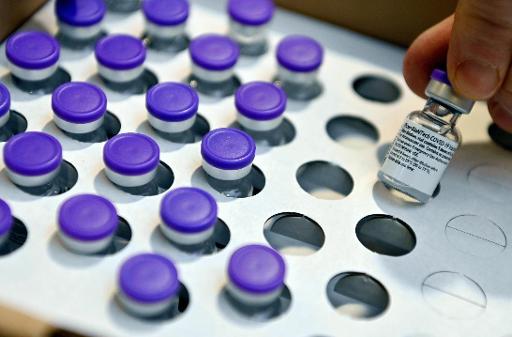Confusion has arisen following the vaccination of some groups of people ahead of schedule in Flanders in recent days, as they received the leftover vaccines of others who did not show up at the vaccination centre.
Once a vial is thawed, it has to be administered quickly as throwing it away when the person for who it is intended for does not show up is a waste, leading vaccination centres to use reserve lists.
"The general instruction for when people do not show up is to look for others to use those reserves as much as possible within the group in which you are vaccinating," said Joris Moonens of the Flemish Agency for Care and Health on Flemish radio.
"In this case, it concerns first-line healthcare staff," he said, adding that it is not the intention to simply vaccinate members of non-priority groups first.
However, as the lists were put together by the centres themselves, they led to several kindergarten teachers being vaccinated in some municipalities in Limburg last weekend. Additionally, 100 people received a vaccine after responding to a Facebook post in Wemmel, as the centre could not use its backup list due to a system update.
Both situations caused a number of indignant reactions from many people on social media, mainly from people working in the healthcare sector who are still waiting for their vaccines.
Related News
- Belgium considers postponing second coronavirus vaccination dose
- Almost 75% of Brussels primary care workers don't show up for vaccine
- 100 Belgians given coronavirus vaccine after responding to Facebook post
On Monday, however, the Agency launched a tool to create official reserve lists, to prevent similar issues in the future, according to Moonens.
Centre managers can now log in to the new tool with their eID to see lists of healthcare staff in the region who have not yet received the vaccine, which they can then use to draw up the invitation and reserve lists.
"After registration via Vaccinnet, care personnel who have already received a vaccine will disappear from that list," Moonens said. "It is therefore important that hospitals register the vaccinations as soon as possible."
However, according to emergency doctor and coordinator of the vaccination village at Park Spoor Oost in Antwerp, Jan Stroobants, the question remains if those official reserve lists are complete and effective.
"For the time being, we have been able to deal with our no-shows by vaccinating the staff of the test and vaccination village," he told Het Nieuwsblad. "Additionally, we are also looking at the city's priority services."
Stroobants is arguing for a system with text messages for quick last-minute bookings. "Filling in some gaps at the end of the day is a huge amount of work, and you have to get a lot of staff to work overtime for that."
People who do not show up without cancelling are a real problem, according to Stroobants, who said that there was something to be said for adding them to the back of the queue again.
"It is a bit like booking a hotel. If you book a room, you do not show up and do not cancel, then they charge you for the room anyway," he said, adding that the invitation system has to be airtight before that is possible.
"It cannot be that people have to miss out on their vaccine because of organisational or IT problems," Stroobants added, referring to people who only received their invitations after their appointments or people who were double-booked.
According to Moonens of the Agency for Care and Health, however, this should no longer be happening now. "We knew that in the initial phase, we were taking a bit too little time between the moment of the invitation and the moment of the vaccination."
The goal is to have a standard period of two weeks at the most. "In the beginning, it was not always possible to meet that deadline. That's why we initially counted on the digital invitations, but that's where the database played tricks on us."
Maïthé Chini
The Brussels Times

